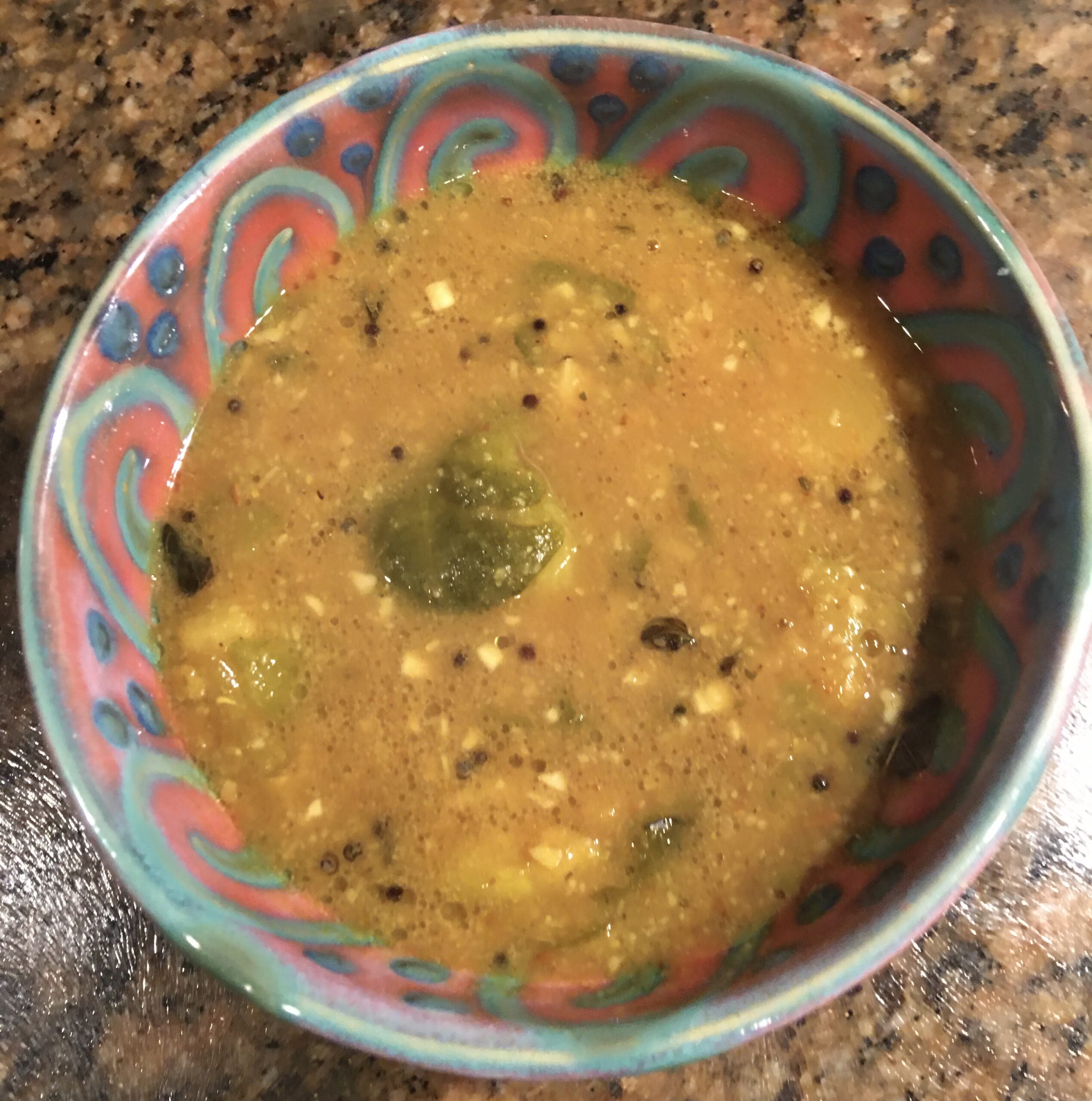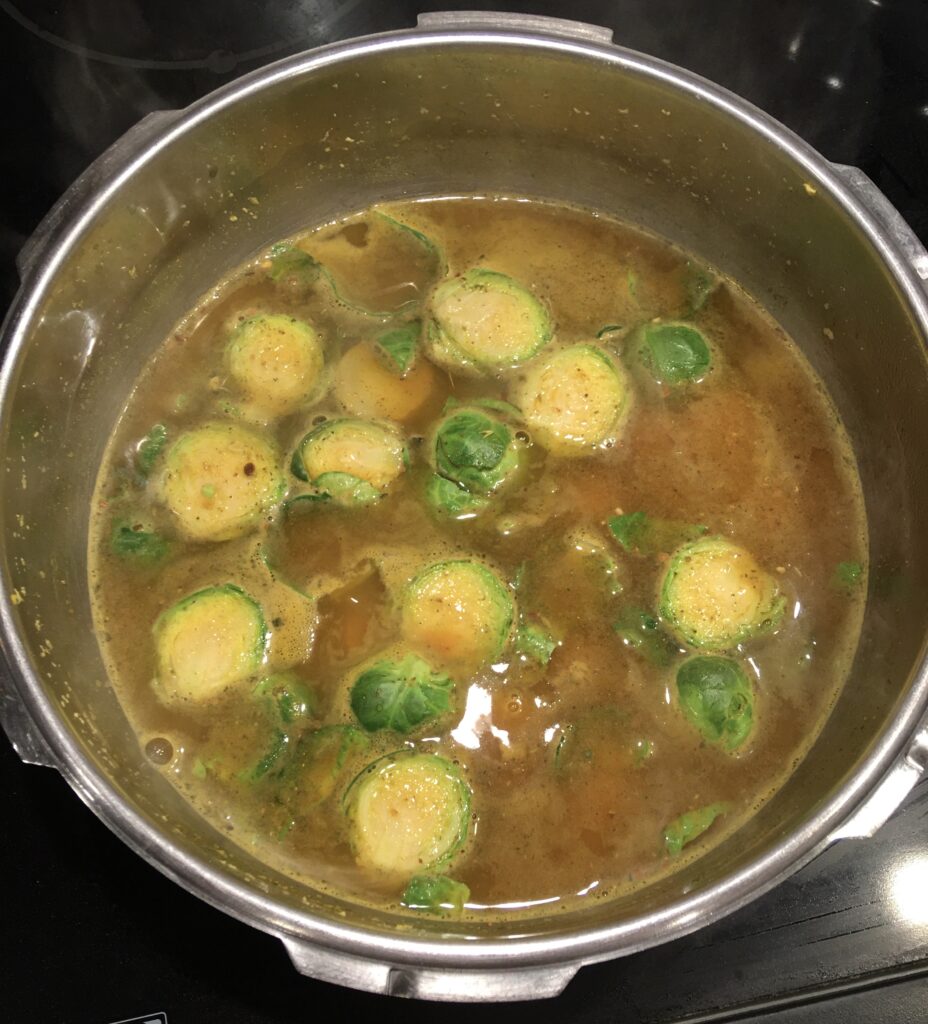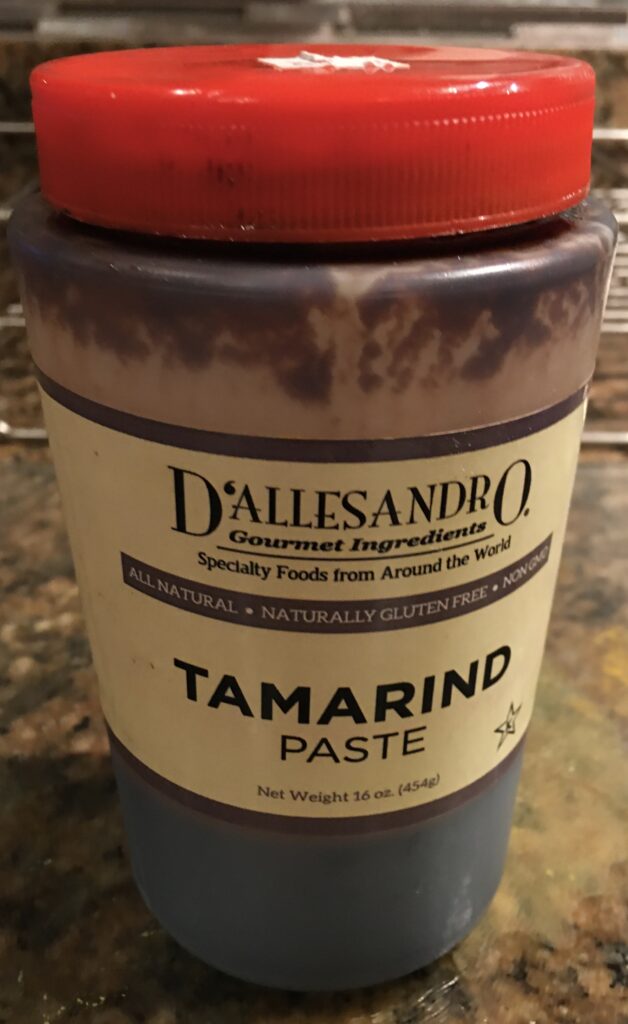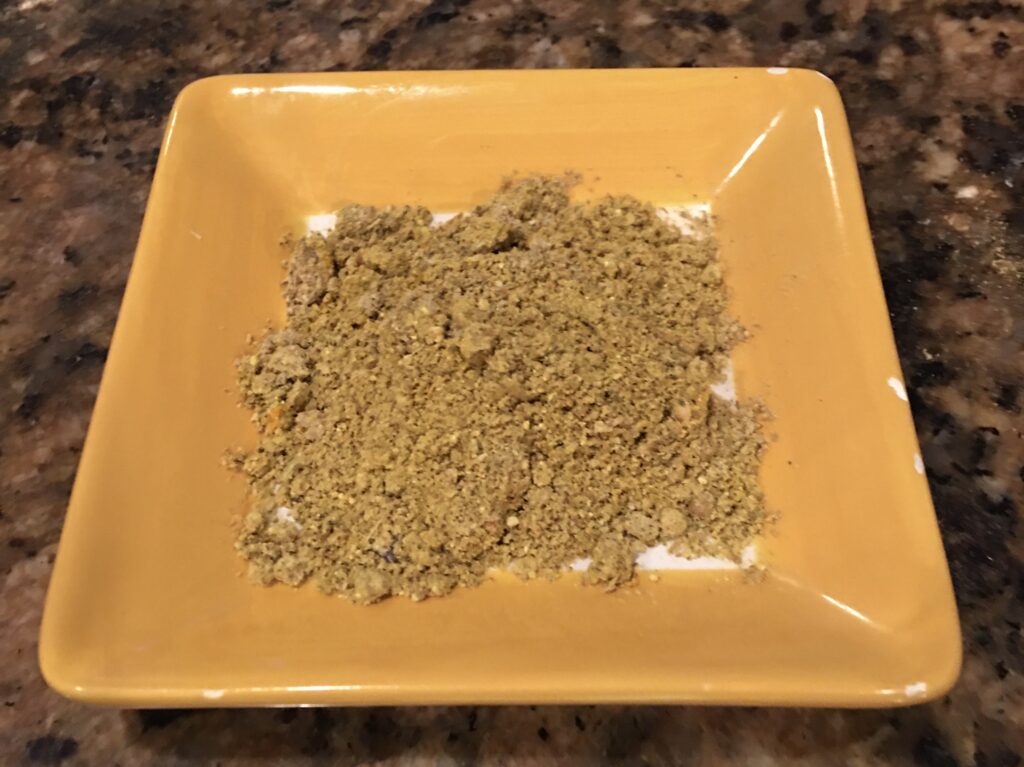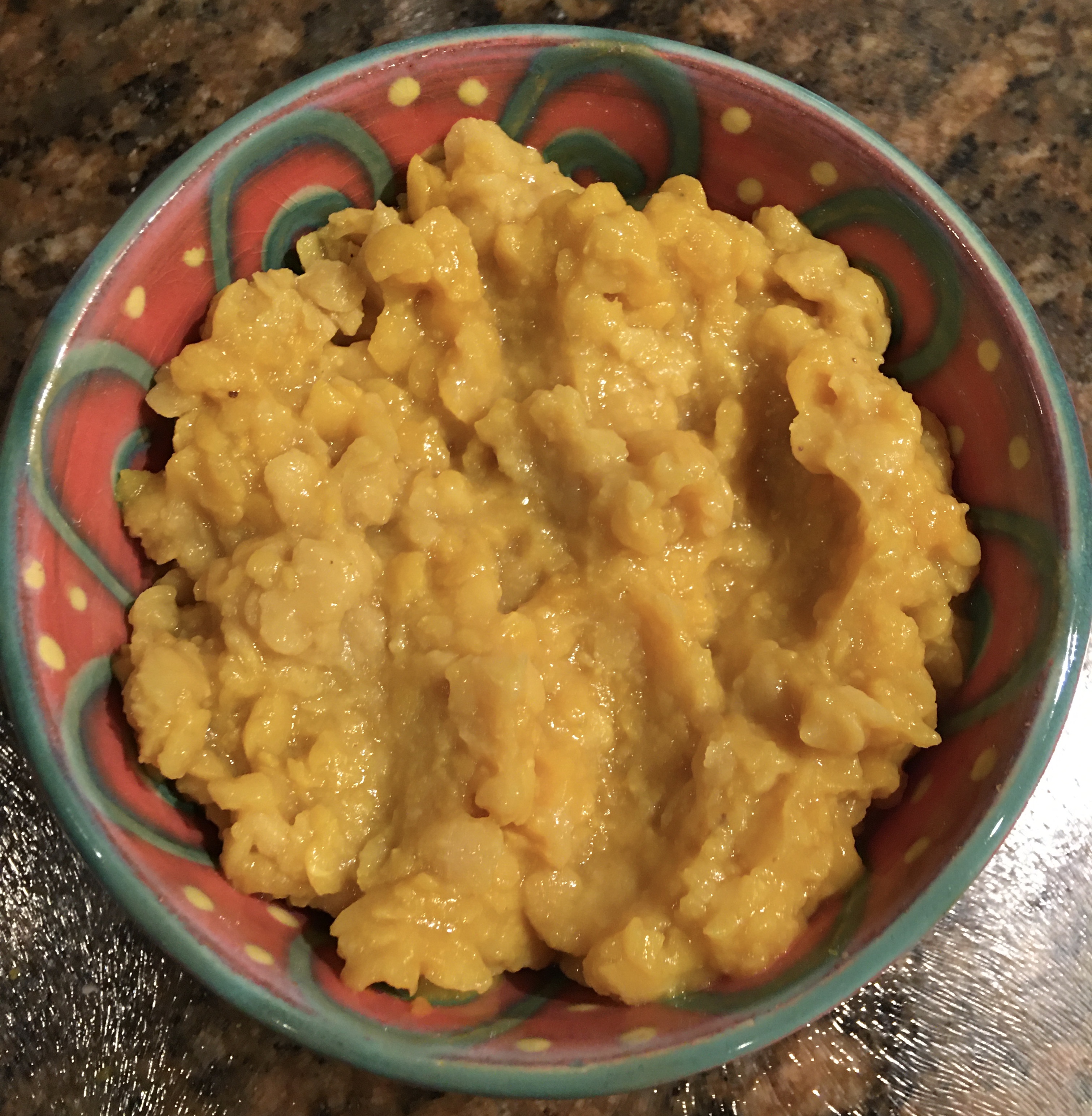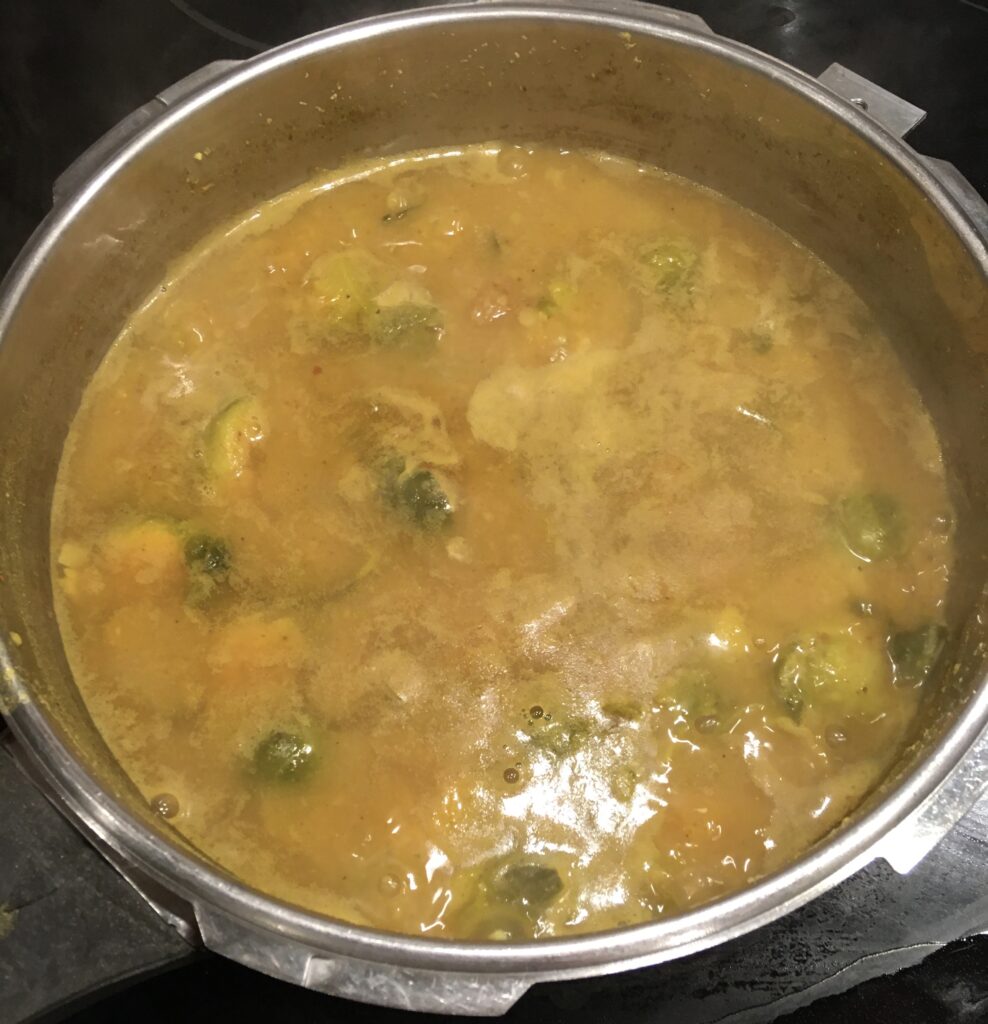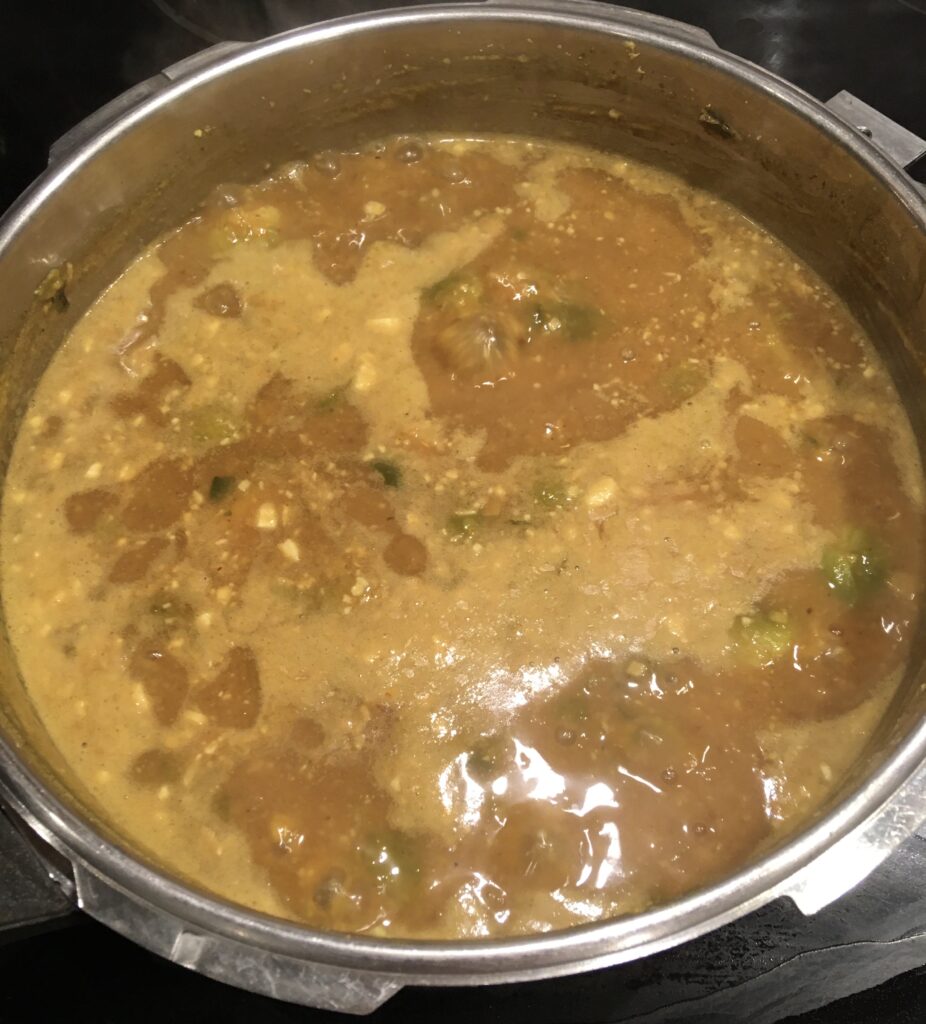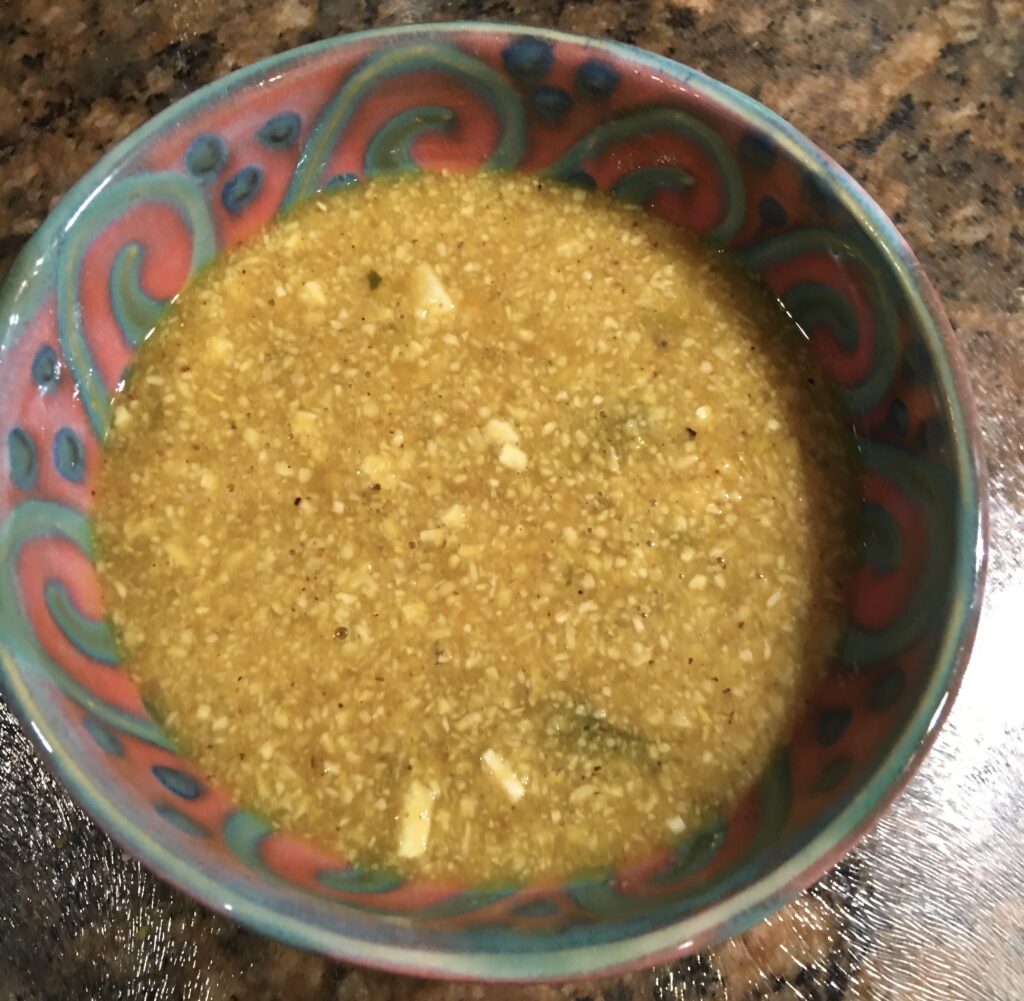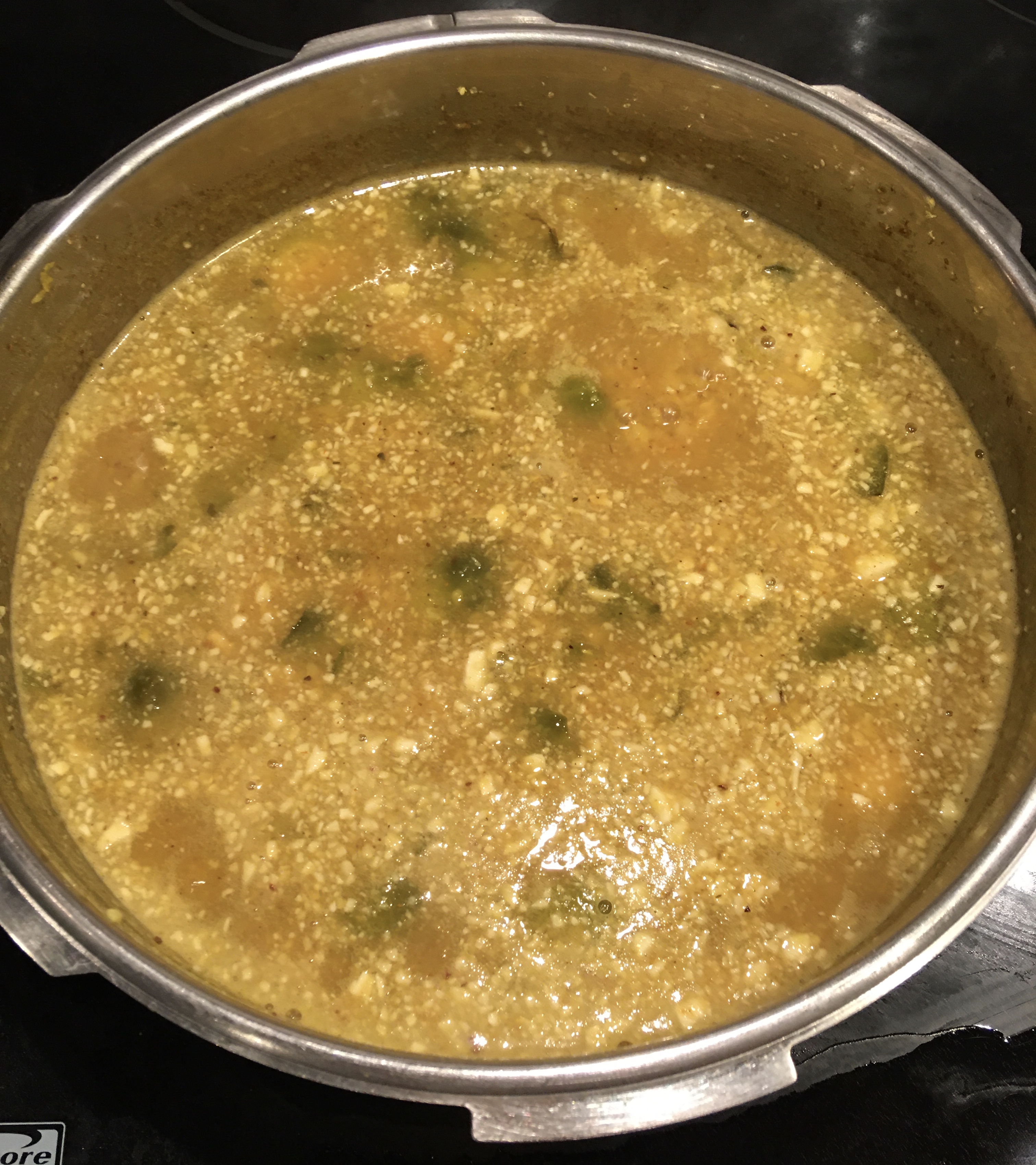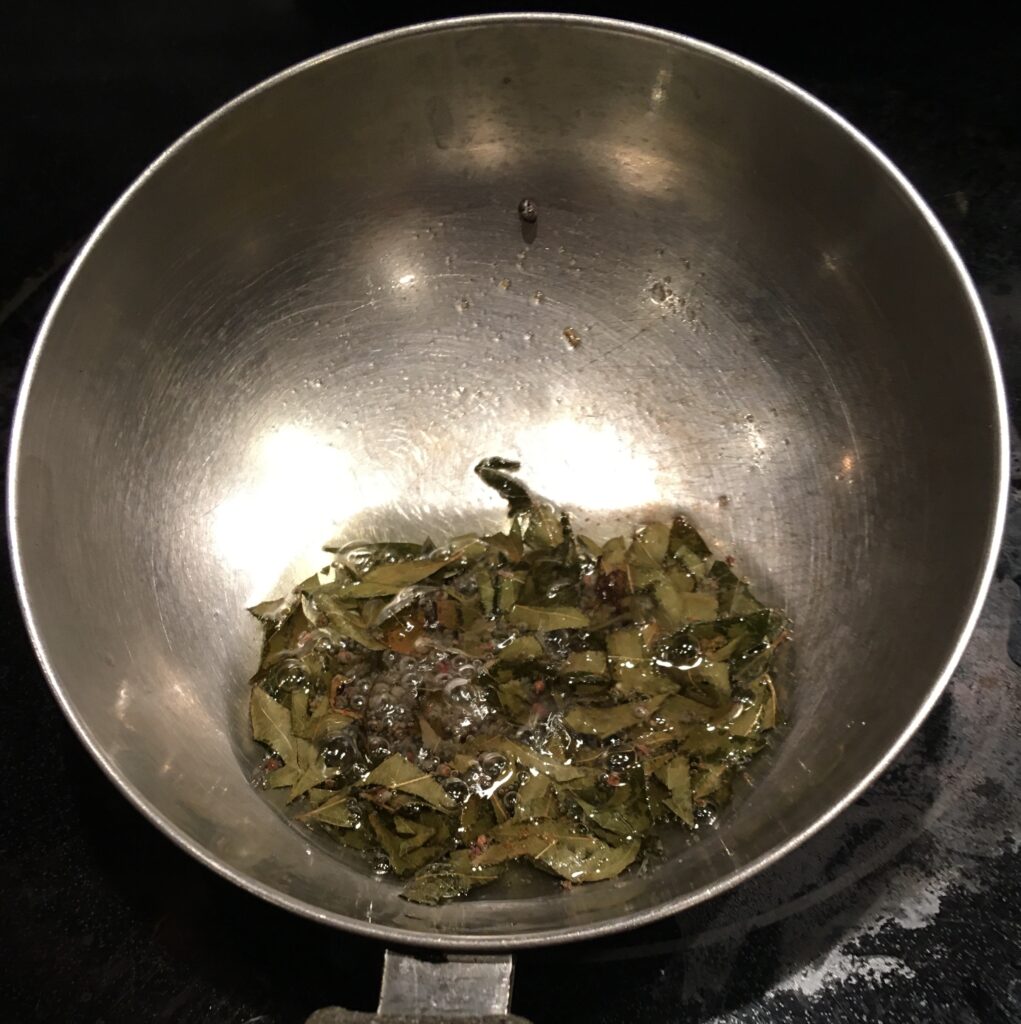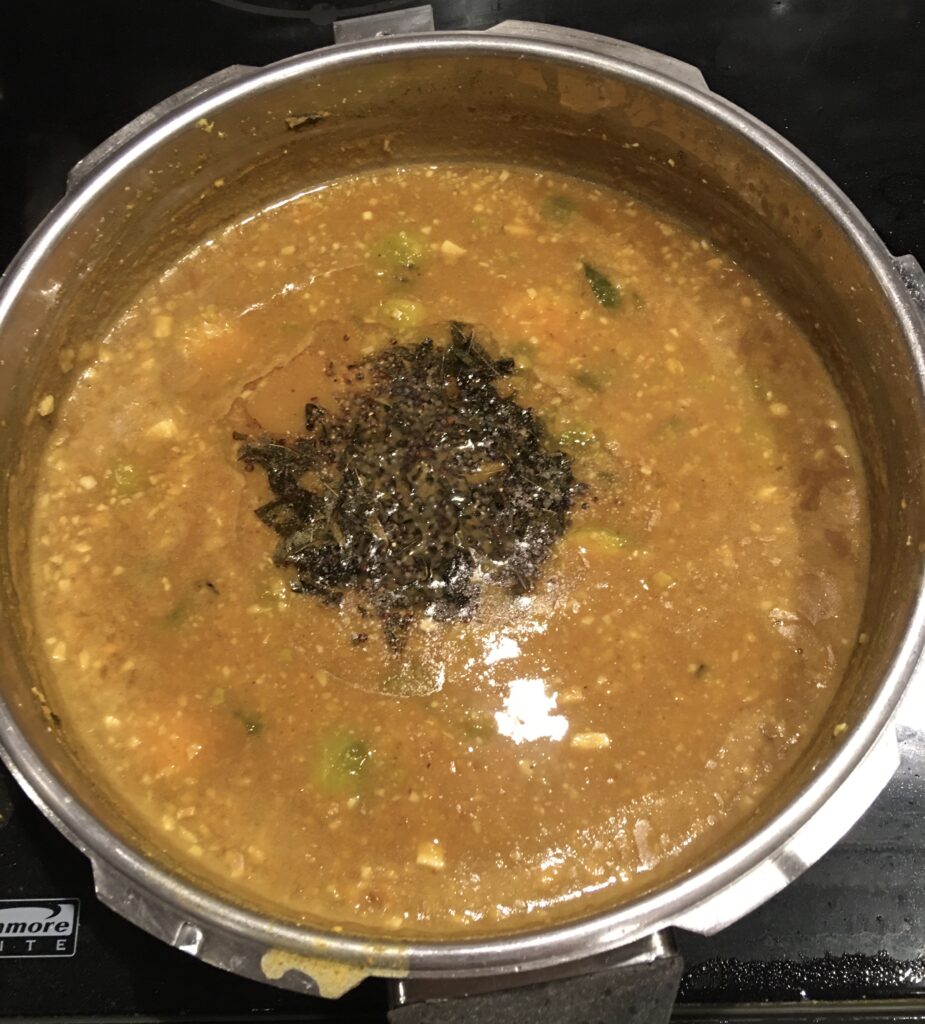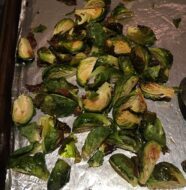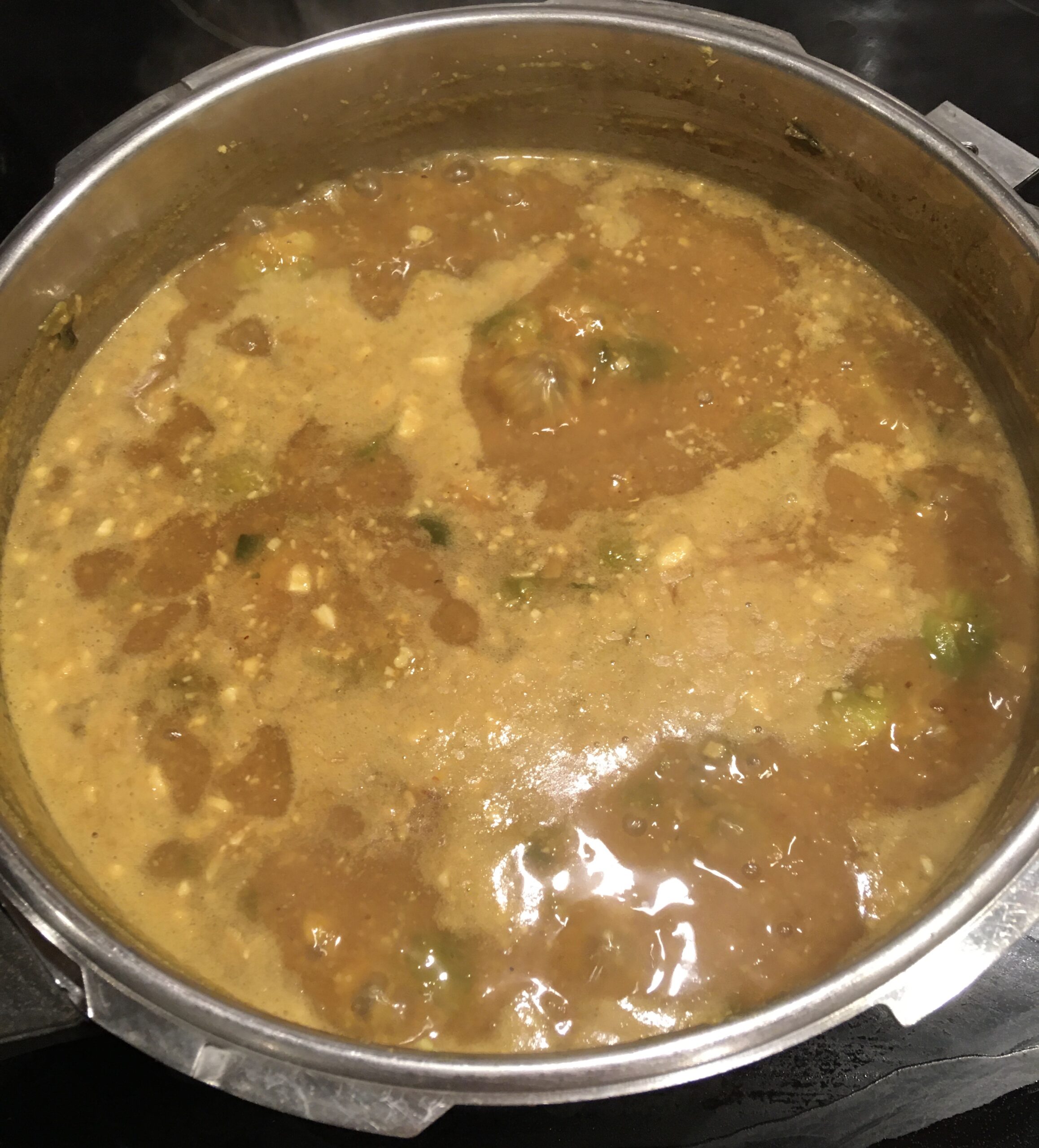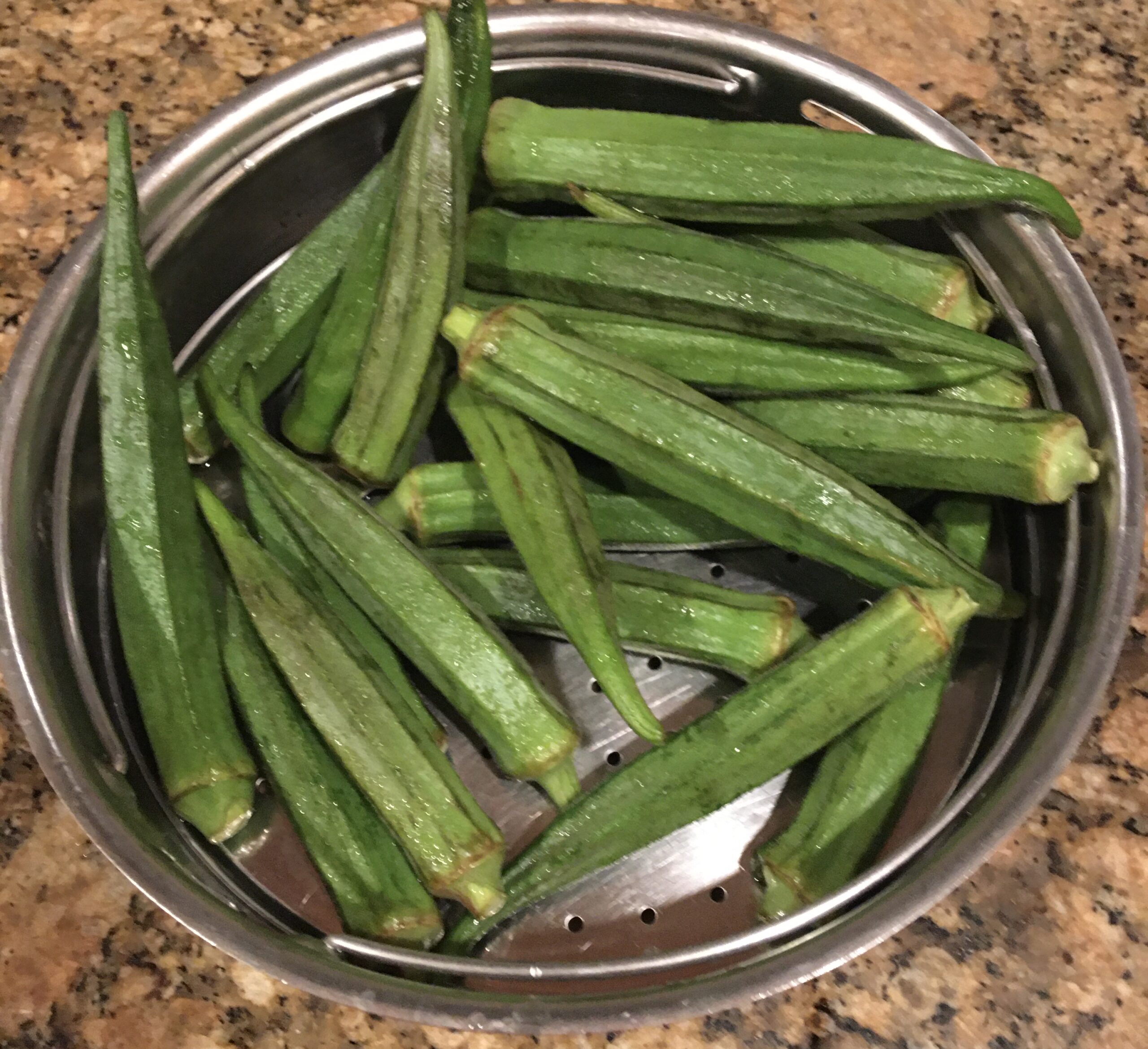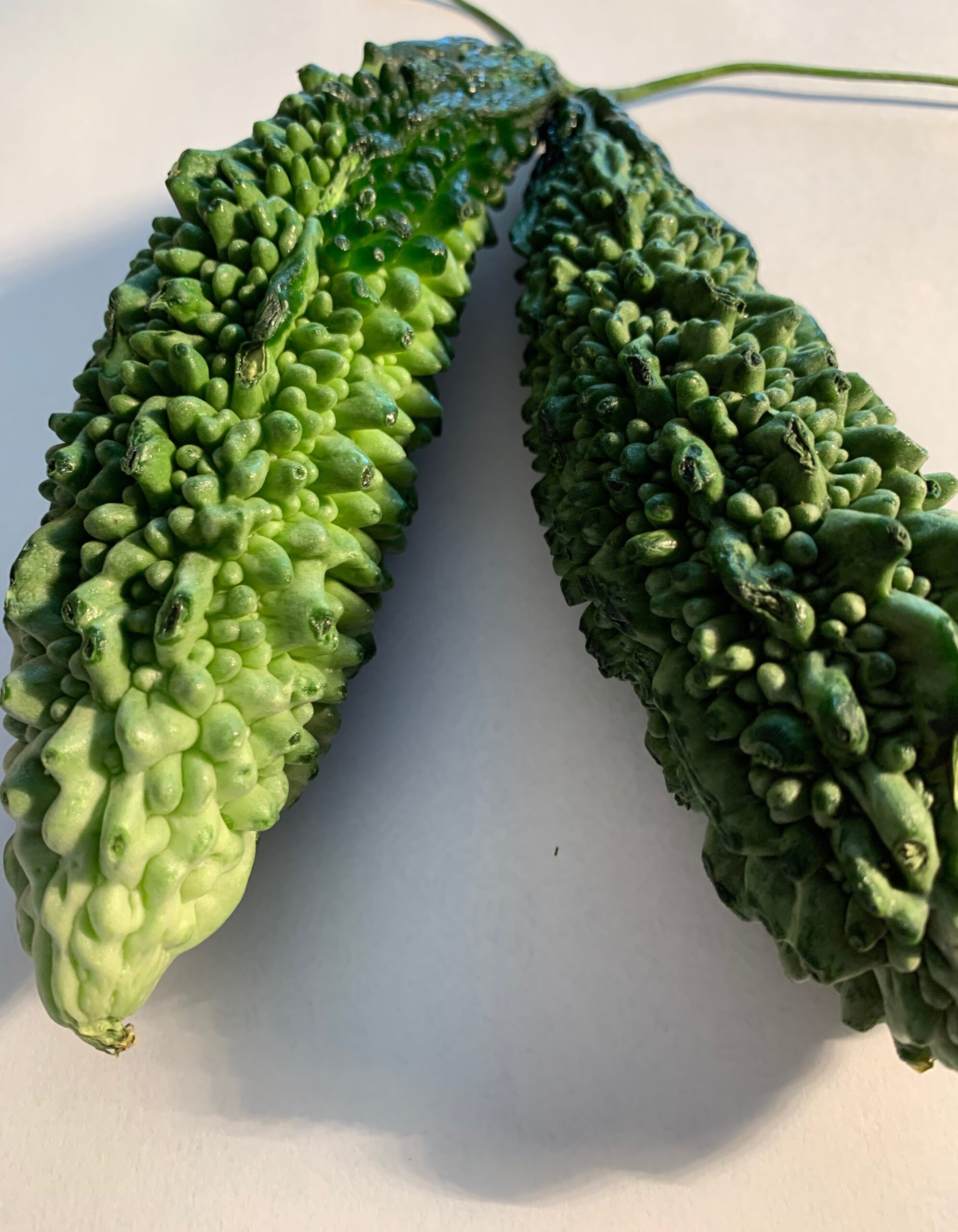Brussels Sprouts, a cruciferous vegetable, with the scientific name “Brassica Oleracea var. Gemmifera” from the Brassicae family, were introduced by the British to Indians during their ruling period in the 1900s and grown in Ootacamund S. India. Sambhar a tamarind-based sauce with lentils has been adapted to include this unique vegetable. The strong spices coriander and fenugreek used in the sauce can easily mask the sulfur flavor of the Brussels sprouts.
Buying & storing: Brussels Sprouts are available from late August to March. Buy small bright green sprouts with compact heads. Store unwashed sprouts in a ziplock bag in the refrigerator for 3 days, as longer storage creates a strong sulfur flavor.
History: Brussels sprouts have been cultivated since the 16th century in Belgium and are cousins of the cauliflower family. They are miniature cabbages ranging from 1″ to 11/2″ in diameter. Many rows of sprouts grow on a single long stalk. Cultivation in the US began around 1800 when French settlers brought them to Louisiana though most of it is grown in California now.
Story: My aunt who grew up in Ooty has fond memories of being bribed with chocolates to eat Brussels sprouts (termed English vegetables) by her grandmother, who had them growing in their estate that supplied to the local government guesthouses visited by British officers.
Brussels sprouts Nutrition Facts (Brassica Oleracia Gemmifera) 100g raw %DV
| GI =32 GL =3 | Minerals | Vitamins |
| Energy 36 kcal – 2% | Sodium 25mg 1.5% | Folates 61mcg – 15% |
| Carb. 8.95g – 7% | Potassium 389mg – 8% | Niacin 0.745mg – 4.5% |
| Protein 3.38g – 6% | Calcium 42 mg – 4% | Pantothenic acid 0.309 mg – 6% |
| Total Fat 0.3g – 1% | Copper 0.7mg – 8% | Pyridoxine 0.219 mg – 17% |
| Cholesterol 0 mg – 0% | Iron 1.4 mg – 17.5% | Riboflavin 0.9mg – 7% |
| Dietary Fiber 3.8g – 10 % | Magnesium 23mg – 6% | Thiamin 0.139mg – 13% |
| Alpha Carotene 6mcg | Manganese 0.337 mg – 15% | Vitamin A 754 IU – 25% |
| Beta Carotene 450 mcg | Phosphorous 69mg – 10% | Vitamin C 85mg -142% |
| Lutein zeaxanthin 1590 mcg | Selenium 1.6mcg – 3% | Vitamin K 177mcg – 147% |
| Water = 75.7 g | Zinc 0.42mg – 4% |
Health Benefits of Brussels Sprouts
- Brussels sprouts can boost the immune system:1 cup provides more than 120% RDA vitamin C which stimulates white blood cell production, acts as anti-oxidant, lowering chances of chronic disease.
- Brussels sprouts may reduce inflammation: antioxidant Kaempferol has potent anti-inflammatory properties.
- Brussels sprouts consumption regularly can reduce the risk of cataracts as they contain Vitamin C and Sinigrin.
- Brussels sprouts have the ability to fight cancer: Sulphur compounds present have shown promising results with melanoma, esophageal, prostate, and pancreatic cancer. Chlorophyll’s presence blocks the cancerous effects of heterocyclic amines generated when charring meats.
- Brussels sprouts can help with blood clotting 1 cup contains 240% RDA vitamin K which ensures blood clotting, protect heart health, and boost bone strength.
- Caution: Individuals taking blood thinners, (Coumadin or Warfarin) should not eat Brussels sprouts as it can affect their Vitamin K levels. It is advisable to consult a doctor.
Spice & Herb Power
- Turmeric powder: may improve liver function with its antioxidant abilities.
- Red chili: alleviates migraines, may reduce risks of cancer, fights fungal infections, cold, and the flu, provides joint pain relief, fights inflammation, supports cardiovascular health, decreases the risk of type 2 diabetes, and improves digestive health and metabolism.
- Coriander seeds: lowers the incidence of conjunctivitis and in the prevention of eye infections with antioxidants. Water boiled with coriander seeds and cooled to room temperature can be used to wash the eye frequently for red eye symptoms.
- Chickpea lentils: protein and fiber in it can keep appetite under control.
- Fenugreek seeds: promotes lactation in new moms (neonatal) and minimizes menopause symptoms.1 tsp. Sprouted fenugreek seeds eaten on an empty stomach in the morning help with diabetes prevention.
- Asafetida powder: helps relieve bloating and irritable bowel syndrome (IBS)with its anti-spasmodic and anti-inflammatory properties.
- Mustard seeds: help prevent cancer with isothiocyanates by neutralizing carcinogens., eliminate poisonous effects, and prevent further cell mutations.
- Coconut flakes: can boost energy levels and brain function when MCT ( medium-chain triglycerides) increases blood levels of ketones supplying energy to the brain cells; especially Alzheimer’s patient’s symptoms.
- Cilantro leaves: phytochemicals in cilantro protect the heart from oxidative damage.
Method to cook Brussels sprouts Sambhar
Cooking Lentils
- Cook pigeon pea lentils in a saucepan with 2 cups water on the stove or in a pressure cooker. Blend lentils using a hand blender. (20 min.)
Cooking vegetables in Tamarind sauce ( while lentils are cooking)
- Soak tamarind pod in 2 cups hot water; squeeze pulp twice. OR
- Mix tamarind pulp in 2 cups water. Cook halved Brussels sprouts in tamarind sauce. (10 min.)
Frying sambhar spices & grinding (while lentils & Brussels sprouts are cooking)
- Fry sambhar spices (coriander seeds, methi seeds, chana dal, red chili & asafoetida ) in oil until golden; use a blender to grind with coconut to a fine paste. (2 min)
Mixing lentils, tamarind sauce and sambhar paste in to sambhar sauce
- Combine the lentils with Brussels sprouts in tamarind sauce.
- Mix sambhar paste with Brussels sprouts in lentil-tamarind sauce; bring to a boil. (8 min)
- Remove from heat, garnish with cilantro or curry leaves.
Sizzling process:
- Heat 1 tsp. oil, add mustard seeds, cover with a lid;
- When they splutter add curry leaves & pour on sambhar sauce.
- Stir the sambhar with a ladle to make it homogeneous.
- Garnish with cilantro leaves.
Quick Sambhar: (15 min.)
- Blend 1 tbsp. tamarind paste with 2 cups water to make tamarind juice. Add 1/2 tsp. turmeric powder, 1/2 tsp. asafetida powder and 1 tbsp. sambhar powder.
- Boil with any precut or frozen vegetable vegetables for 8 min.
- Blend in precooked pigeon pea lentils; bring to a boil & simmer. (5 min)
- Add coconut flakes to mustard seeds in oil, let it turn golden, then pour on sambhar sauce.
- Garnish using cilantro or curry leaves. (2 min)
Serve Brussels sprouts Sambhar with Quinoa, Brown Basmati or Jasmine rice, Idli(dumplings), Dosai(crepes), Sevai (noodles), Vadai(donuts), or papads (fryums).
TIPS
Time saver: Substitute whole sambar spices with 1tbsp. Sambhar powder store-bought or Homemade
Sambhar powder: dry roast 1/2 cup. coriander seeds+1/4 cup Chana dal+1/8 cup Fenugreek seeds+ 2 Red chilies +1/2 tsp Asafetida powder – grind together in a blender
Instant Sambhar mixes are available; embellish the sauce with extra lentils, coconut flakes and tomatoes
Sambhar = lentils+ tamarind sauce+vegetables+coconut

